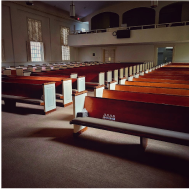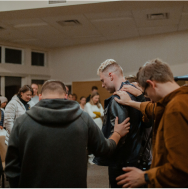Georgia AG Churches
Serving ministers and congregations across the state of Georgia.

Plant a Church
Are you called to plant a church? We’d love to provide support, guidance, and partner with your vision.

DCA Monthly Report
Pastors of District Council Affiliated Churches in Georgia––fill out your monthly report below.

Become a GCA Church
Required Steps:
1
The applying church must have at least 20 adult members.
2
The church must be spiritually mature and financially capable of being autonomous.
3
The church does not need to apply for a 501(c)(3), because as an Assembly of God church if you are already included in the General Council Group 501(c)(3).
4
The Church should be Incorporated and have a Federal EIN.
5
Contact the Superintendent (via the form below) and officially request to take the steps towards GCA status.
6
The church must develop Bylaws — check with the Superintendent for examples.
7
Send the Superintendent and the Regional Presbyter a copy of the proposed Bylaws for preliminary approval. They will make sure that the necessary items are covered in the Bylaws.
8
The Superintendent may want to have a personal interview with the church pastor after reviewing proposed Bylaws.
9
After the Superintendent is satisfied that the document meets all requirements, and that the church is ready for GCA status, he will present the GCA request and the proposed Bylaws to the Presbytery for approval.
10
The Superintendent will schedule a date and time to set the church in order.
Join the Family —Contact Us Today
Newsletter
We will get back to you as soon as possible.
Please try again later.

Georgia AG: Job Openings
Looking for a ministry position? Need to hire? Search and post AG job openings statewide.
Get Equipped:
Church University
Train up your ministry team! We’ve partnered with Church University to provide online tracks for leadership skills, church growth, and more.


Financial & Legal Matters
The Assemblies of God can help you navigate financial and legal matters as they arise. Click below or visit ag.org for more information.

DCA Church Bylaws
Bylaws for District Council Affiliated Church Georgia Assemblies of God
steps to launch
For the purpose of establishing and maintaining a place for the worship of Almighty God, our Heavenly Father; to provide for Christian fellowship for those of like precious faith, where the Holy Spirit may be honored according to our distinctive testimony; to assume our share of responsibility and the privilege of propagating the gospel of Jesus Christ, by all available means, both at home and in foreign lands; we, the members of this assembly, do hereby recognize ourselves as a local assembly in fellowship with, and as a part of, the Georgia District Council of the Assemblies of God.
1. Govern
A. This assembly as a District Council Affiliated church of the Georgia Assemblies of God has the right to govern itself under the supervision of a Board composed of the following Officers: The Regional Presbyter from the region in which the church resides, Pastor of the District Affiliated church, Superintendent, Assistant Superintendent, and Secretary/Treasurer. They shall act as the church board and may execute any and all documents for the local Assembly, including the power and authority to execute deeds conveying any interest in real property. If the church is without a Pastor then one of the members of the advisory committee will automatically assume a seat on the District Affiliated Church Board.
B. The Board shall appoint the Pastor as defined in Article I. Governance and Purpose; Section 1. Govern; and Paragraph a. The pastor can be removed by the same Board that appointed him/her when deemed necessary for the best interest of the assembly or District.
C. This assembly shall choose from its membership an Advisory Committee of no less than two but no more than four members to serve with the Pastor. The Pastor will act as chairperson, by virtue of office. The Advisory Committee will make and be responsible for all the day-to-day decisions of the assembly. Any decisions that requires legal signatories or encumbers the church in any way shall in accordance to Article I. Governance and Purpose; Section 1. Govern; and Paragraph a.
D. For Incorporation purposes there shall be a president, secretary, and treasurer. The pastor, by virtue of office, shall be the president. The offices of secretary and treasurer are to be members of the Advisory Committee and may be held simultaneously by the same individual.
2. Worship, Fellowship, and Propagate
The purpose of this assembly shall be to establish and maintain a place for the worship of Almighty God, our Heavenly Father, to provide for Christian fellowship for those of like precious faith, where the Holy Spirit may be honored according to our distinctive testimony, and to assume our share of responsibility and the privilege of propagating the gospel of Jesus Christ by all available means, both at home and in foreign lands.
3. Cooperate
This assembly shall cooperate with the District Council and the General Council to extend the work and kingdom of God throughout the world. It shall support the missionary program as agreed upon. It shall participate in District Council session through its chosen delegates and share in the support of the ministries of these bodies.
The Bible is our all-sufficient rule for faith and practice. This Statement of Fundamental Truths is intended simply as a basis of fellowship among us (i.e., that we all speak the same thing, 1 Corinthians 1:10; Acts 2:42). The phraseology employed in this statement is not inspired or contended for, but the truth set forth is held to be essential to a full-gospel ministry. No claim is made that it contains all biblical truth, only that it covers our need as to these fundamental doctrines.
1. The Scriptures Inspired
The Scriptures, both the Old and New Testaments, are verbally inspired of God and are the revelation of God to man, the infallible, authoritative rule of faith and conduct (2 Timothy 3:15-17; 1 Thessalonians 2:13; 2 Peter 1:21).
2. The One True God
The one true God has revealed himself as the eternally self-existent "I AM," the Creator of heaven and earth and the Redeemer of mankind. He has further revealed himself as embodying the principles of relationship and association as Father, Son, and Holy Ghost (Deuteronomy 6:4; Isaiah 43:10, 11; Matthew 28:19; Luke 3:22).
A. Terms Defined
The terms trinity and persons, as related to the Godhead, while not found in the Scriptures, are words in harmony with Scripture, whereby we may convey to others our immediate understanding of the doctrine of Christ respecting the Being of God, as distinguished from "gods many and lords many.” We therefore may speak with propriety of the Lord our God, who is One Lord, as a Trinity or as one Being of three persons, and still be absolutely scriptural (examples, Matthew 28:19; 2 Corinthians 13:14; John 14:16,17).
B. Distinction and Relationship in the Godhead
Christ taught a distinction of persons in the Godhead which He expressed in specific terms of relationship, as Father, Son, and Holy Ghost, but that this distinction and relationship, as to its mode is inscrutable and incomprehensible, because unexplained (Luke 1:35; 1 Corinthians 1:24; Matthew 11:25 27; 28:19; 2 Corinthians 13:14; 1 John 1:3,4).
C. Unity of the One Being of Father, Son, and Holy Ghost
Accordingly, therefore, there is that in the Father which constitutes Him the Father and not the Son; there is that in the Son which constitutes Him the Son and not the Father; and there is that in the Holy Ghost which constitutes Him the Holy Ghost and not either the Father or the Son. Wherefore the Father is the Begetter; the Son is the Begotten; and the Holy Ghost is the One proceeding from the Father and the Son. Therefore, because these three persons in the Godhead are in a state of unity, there is but one Lord God Almighty and His name one (John 1:18; 15:26; 17:11, 21; Zechariah 14:9).
D. Identity and Cooperation in the Godhead
The Father, the Son, and the Holy Ghost are never identical as to person; nor confused as to relation; nor divided in respect to the Godhead; nor opposed as to cooperation. The Son is in the Father and the Father is in the Son as to relationship. The Son is with the Father and the Father is with the Son, as to fellowship. The Father is not from the Son, but the Son is from the Father, as to authority. The Holy Ghost is from the Father and the Son proceeding, as to nature, relationship, cooperation, and authority. Hence no person in the Godhead either exists or works separately or independently of the others (John 5:17-30, 32, 37; 8:17, 18).
E. The Title, Lord Jesus Christ
The appellation Lord Jesus Christ is a proper name. It is never applied in the New Testament either to the Father or to the Holy Ghost. It therefore belongs exclusively to the Son of God (Romans 1:1-3, 7; 2 John 3).
F. The Lord Jesus Christ, God with us
The Lord Jesus Christ, as to His divine and eternal nature, is the proper and only Begotten of the Father, but as to His human nature, He is the proper Son of Man. He is, therefore, acknowledged to be both God and man; who because He is God and man, is "Immanuel," God with us (Matthew 1:23; 1 John 4:2, 10, 14; Revelation 1:13, 17).
G. The Title, Son of God
Since the name Immanuel embraces both God and man, in the one person, our Lord Jesus Christ, it follows that the title Son of God describes His proper deity, and the title Son of Man, His proper humanity. Therefore, the title Son of God belongs to the order of eternity, and the title Son of Man to the order of time (Matthew 1:2123; 2 John 3; 1 John 3:8; Hebrews 7:3; 1:113).
H. Transgression of the Doctrine of Christ
Wherefore, it is a transgression of the doctrine of Christ to say that Jesus Christ derived the title Son of God solely from the fact of the Incarnation, or because of His relation to the economy of redemption. Therefore, to deny that the Father is a real and eternal Father, and that the Son is a real and eternal Son, is a denial of the distinction and relationship in the Being of God; a denial of the Father and Son; and a displacement of the truth that Jesus Christ is come in the flesh (2 John 9; John 1:1,2,14,18,29,49; 1 John 2:22,23; 4:1-5; Hebrews 12:2).
I. Exaltation of Jesus Christ as Lord
The Son of God, our Lord Jesus Christ, having by himself purged our sins, sat down on the right hand of the Majesty on high, angels and principalities and powers having been made subject unto Him. And having been made both Lord and Christ, He sent the Holy Ghost that we, in the name of Jesus, might bow our knees and confess that Jesus Christ is Lord to the glory of God the Father until the end, when the Son shall become subject to the Father that God may be all in all (Hebrews 1:3; 1 Peter 3:22; Acts 2:32-36; Romans 14:11; 1 Corinthians 15:24-28).
J. Equal Honor to the Father and to the Son
Wherefore, since the Father has delivered all judgment unto the Son, it is not only the express duty of all in heaven and on earth to bow the knee, but it is an unspeakable joy in the Holy Ghost to ascribe unto the Son all the attributes of deity, and to give Him all the honor and the glory contained in all the names and titles of the Godhead except those which express relationship (see paragraphs b, c, and d), and thus honor the Son even as we honor the Father (John 5:22,23; 1 Peter 1:8; Revelation 5:6-14; Philippians 2:8,9; Revelation 7:9,10; 4:8-11).
3. The Deity of the Lord Jesus Christ
The Lord Jesus Christ is the eternal Son of God. The Scriptures declare:
A. His virgin birth (Matthew 1:23; Luke 1:31, 35).
B. His sinless life (Hebrews 7:26; 1 Peter 2:22).
C. His miracles (Acts 2:22; 10:38).
D. His substitutionary work on the cross (1 Corinthians 15:3; 2 Corinthians 5:21).
E. His bodily resurrection from the dead (Matthew 28:6; Luke 24:39; 1 Corinthians 15:4).
F. His exaltation to the right hand of God (Acts 1:9, 11; 2:33; Philippians 2:9-11; Hebrews 1:3).
4. The Fall of Man
Man was created good and upright; for God said, "Let us make man in our image, after our likeness.” However, man by voluntary transgression fell and thereby incurred not only physical death but also spiritual death, which is separation from God (Genesis 1:26, 27; 2:17; 3:6; Romans 5:12-19).
5. The Salvation of Man
Man's only hope of redemption is through the shed blood of Jesus Christ the Son of God.
A. Conditions to Salvation
Salvation is received through repentance toward God and faith toward the Lord Jesus Christ. By the washing of regeneration and renewing of the Holy Ghost, being justified by grace through faith, man becomes an heir of God according to the hope of eternal life (Luke 24:47; John 3:3; Romans 10:13-15; Ephesians 2:8; Titus 2:11; 3:5-7).
B. The Evidence of Salvation
The inward evidence of salvation is the direct witness of the Spirit (Romans 8:16). The outward evidence to all men is a life of righteousness and true holiness (Ephesians 4:24; Titus 2:12).
6. The Ordinances of the Church
A. Baptism in Water
The ordinance of baptism by immersion is commanded in the Scriptures. All who repent and believe on Christ as Savior and Lord are to be baptized. Thus they declare to the world that they have died with Christ and that they have been raised with Him to walk in newness of life (Matthew 28:19; Mark 16:16; Acts 10:47, 48; Romans 6:4).
B. Holy Communion
The Lord's Supper, consisting of the elements--bread and the fruit of the vine--is the symbol expressing our sharing the divine nature of our Lord Jesus Christ (2 Peter 1:4); a memorial of His suffering and death (1 Corinthians 11:26); and a prophecy of His second coming (1 Corinthians 11:26); and is enjoined on all believers "till He come!"
7. The Baptism in the Holy Ghost
All believers are entitled to and should ardently expect and earnestly seek the promise of the Father, the baptism in the Holy Ghost and fire, according to the command of our Lord Jesus Christ. This was the normal experience of all in the early Christian church. With it comes the enduement of power for life and service, the bestowment of the gifts and their uses in the work of the ministry (Luke 24:49; Acts 1:4, 8; 1 Corinthians 12:1-31). This experience is distinct from and subsequent to the experience of the new birth (Acts 8:12-17; 10:44-46; 11:1416; 15:7-9). With the baptism in the Holy Ghost come such experiences as an overflowing fullness of the Spirit (John 7:37-39; Acts 4:8), a deepened reverence for God (Acts 2:43; Hebrews 12:28), an intensified consecration to God and dedication to His work (Acts 2:42), and a more active love for Christ, for His Word, and for the lost (Mark 16:20).
8. The Initial Physical Evidence of the Baptism in the Holy Ghost
The baptism of believers in the Holy Ghost is witnessed by the initial physical sign of speaking with other tongues as the Spirit of God gives them utterance (Acts 2:4). The speaking in tongues in this instance is the same in essence as the gift of tongues (1 Corinthians 12:4-10, 28), but different in purpose and use.
9. Sanctification
Sanctification is an act of separation from that which is evil, and of dedication unto God (Romans 12:1, 2; 1 Thessalonians 5:23; Hebrews 13:12). Scriptures teach a life of "holiness without which no man shall see the Lord" (Hebrews 12:14). By the power of the Holy Ghost we are able to obey the command: "Be ye holy, for I am holy" (1 Peter 1:15, 16). Sanctification is realized in the believer by recognizing his identification with Christ in His death and resurrection, and by faith reckoning daily upon the fact of that union, and by offering every faculty continually to the dominion of the Holy Spirit (Romans 6:1-11,13; 8:1,2,13; Galatians 2:20; Philippians 2:12,13; 1 Peter 1:5).
10. The Church and Its Mission
The Church is the body of Christ, the habitation of God through the Spirit, with divine appointments for the fulfillment of her Great Commission. Each believer, born of the Spirit, is an integral part of the general assembly and church of the firstborn, which are written in heaven (Ephesians 1:22,23; 2:22; Hebrews 12:23). Since God’s purpose concerning man is to seek and to save that which is lost, to be worshiped by man, to build a body of believers in the image of His Son, and to demonstrate His love and compassion for all the world, the priority reason for being of the Assemblies of God as part of the Church is:
A. To be an agency of God for evangelizing the world (Acts 1:8; Matthew 28:19,20; Mark 16:15,16).
B. To be a corporate body in which man may worship God (1 Corinthians 12:13).
C. To be a channel of God’s purpose to build a body of saints being perfected in the image of His Son (Ephesians 4:11–16; 1 Corinthians 12:28; 14:12).
D. To be a people who demonstrate God’s love and compassion for all the world (Psalm 112:9; Galatians 2:10; 6:10; James 1:27).
The Assemblies of God exists expressly to give continuing emphasis to this reason for being in the New Testament apostolic pattern by teaching and encouraging believers to be baptized in the Holy Spirit. This experience:
A. Enables them to evangelize in the power of the Spirit with accompanying supernatural signs (Mark 16:15–20; Acts 4:29–31; Hebrews 2:3,4).
B. Adds a necessary dimension to a worshipful relationship with God (1 Corinthians 2:10–16; 1 Corinthians 12–14).
C. Enables them to respond to the full working of the Holy Spirit in expression of fruit and gifts and ministries as in New Testament times for the edifying of the body of Christ and care for the poor and needy of the world (Galatians 5:22–26; Matthew 25:37–40; Galatians 6:10; 1 Corinthians 14:12; Ephesians 4:11,12; 1 Corinthians 12:28; Colossians 1:29).
11. The Ministry
A divinely called and scripturally ordained ministry has been provided by our Lord for the fourfold purpose of leading the Church in: (1) evangelization of the world (Mark 16:15–20), (2) worship of God (John 4:23,24), (3) building a Body of saints being perfected in the image of His Son (Ephesians 4:11,16), and (4) meeting human need with ministries of love and compassion (Psalm 112:9; Galatians 2:10; 6:10; James 1:27).
12. Divine Healing
Divine healing is an integral part of the gospel. Deliverance from sickness is provided for in the Atonement, and is the privilege of all believers (Isaiah 53:4,5; Matthew 8:16,17; James 5:14–16).
13. The Blessed Hope
The resurrection of those who have fallen asleep in Christ and their translation together with those who are alive and remain unto the coming of the Lord is the imminent and blessed hope of the Church (1 Thessalonians 4:16,17; Romans 8:23; Titus 2:13; 1 Corinthians 15:51,52).
14. The Millennial Reign of Christ
The second coming of Christ includes the rapture of the saints, which is our blessed hope, followed by the visible return of Christ with His saints to reign on the earth for one thousand years (Zechariah 14:5; Matthew 24:27,30; Revelation 1:7; 19:11–14; 20:1–6). This millennial reign will bring the salvation of national Israel (Ezekiel 37:21,22; Zephaniah 3:19,20; Romans 11:26,27) and the establishment of universal peace (Isaiah 11:6–9; Psalm 72:3–8; Micah 4:3,4).
15. The Final Judgment
There will be a final judgment in which the wicked dead will be raised and judged according to their works. Whosoever is not found written in the Book of Life, together with the devil and his angels, the beast and the false prophet, will be consigned to everlasting punishment in the lake which burneth with fire and brimstone, which is the second death (Matthew 25:46; Mark 9:43–48; Revelation 19:20; 20:1115; 21:8).
16. The New Heavens and the New Earth
“We, according to His promise, look for new heavens and a new earth, wherein dwelleth righteousness” (2 Peter 3:13; Revelation 21,22).
Section 1. Membership Eligibility
Active membership in this assembly shall be open to all those who possess the following qualifications:
A. A testimony to an experience of the "new birth."
B. Having been baptized in water by immersion.
C. Evidence of a consistent Christian life (Romans 6:4; 8:1-4; 13:13, 14; Ephesians 4:17-32; 5:1, 2, 15; 1 John 1:6, 7).
D. An indication of a willingness to contribute regularly to the financial support of the church of which he is to become a member.
E. Acceptance of the Tenets of Faith as set forth in Article II of these bylaws.
F. Having reached at least 16 years of age.
G. Having regularly attended services of, and supported, this assembly for a period of at least three consecutive months prior to the date of application for membership.
H. Agreement to being governed by the bylaws of this assembly, and of the Georgia District Council of the Assemblies of God.
Section 2. Procedure for Membership Recognition
Those individuals eligible for membership who desire to become members of this church shall make written application to the pastor or church advisory committee. The church advisory committee shall have the right and authority to determine the eligibility and acceptability of all applicants for membership by majority vote. Those approved for membership by the church advisory committee shall be received into the church publicly at any of its regular services, and their names thereupon added to the church membership roll.
Section 3. Pastor and Spouse
By virtue of office the pastor shall be considered an active member of the church during his tenure. The pastor's spouse shall become an active member simultaneously with the pastor.
Section 4. Inactive Membership
Active members who shall without good cause absent themselves from the services of the assembly for a period of 3 consecutive months or more, or who cease to contribute of their means to its support for a period of 3 consecutive months, may be declared inactive members by the church advisory committee and thereupon shall lose their active membership standing until they are restored to the fellowship, their standing to be settled by action of the church advisory committee.
Section 5. Discipline
A. Grounds
Discipline is an exercise of scriptural authority for which the church is responsible (Matthew 16:19; 18:15-20; Luke 17:3; John 20:23; Acts 16:4; Ephesians 5:11; 1 Timothy 5:20; 2 Timothy 4:2; Hebrews 13:17). The purpose of discipline is to promote repentance and restoration through exposing sinful behavior. It is to be redemptive in nature as well as corrective. Any member of the assembly is subject to discipline on the basis of unscriptural conduct or doctrinal departure from the Tenets of Faith of this assembly, as determined in the sole discretion of the church advisory committee. The discipline of ministers who hold credentials with the Assemblies of God is administered by the District Council and General Council of the Assemblies of God.
B. Procedure
The assembly will follow the disciplinary procedure set forth in Matthew 18:15-20. This procedure consists generally of the following steps: (1) The pastor or a designated member of the church advisory committee discusses the charges with the member in an effort to resolve the matter privately; (2) if the first step does not resolve the matter, then the member shall meet with the pastor and church advisory committee or with a designated committee of the church advisory committee in an effort to resolve the matter privately; (3) if the first or second steps do not resolve the matter, then the majority decision or the church advisory committee shall be final. A member found guilty may be dismissed from membership in the church. However, lesser disciplinary sanctions may be imposed as appropriate, depending on the circumstances of each case.
C. Resignations
Members who are under discipline by this assembly forfeit and waive the right to resign from membership in this assembly. Resignations from membership are possible only by those members in good standing who are not under any disciplinary action.
Section 6. Restoration of Members
Members dismissed by the advisory committee shall be restored by the advisory committee according to the spirit of 2 Corinthians 2:7-8, when their life-styles are judged to be in accordance with the Qualifications of Membership.
Section 1. In General
All funds for the maintenance of the assembly shall be provided by the voluntary contributions, tithes, and offerings of the members and friends of the organization. Offerings shall be accepted by the assembly at such times and in such ways as agreed upon by the advisory committee and shall be administered by the treasurer under their direction (Malachi 3:10; Luke 6:38;1 Cor. 16:1,2; 2 Cor. 9:6-8). The treasurer shall give monthly financial reports to advisory committee and to the Board as defined in Article I. Governance and Purpose; Section 1. Govern; and Paragraph a. No indebtedness for mortgage liens or property leases shall be incurred by or for the assembly without specific prior approval by the District Presbytery.
Section 2. Handling of Offerings
All offerings shall be counted by at least two authorized persons before the funds are removed from the church building. An offering receipts form shall be signed in duplicate by those counting the offering, with one copy going to the treasurer and the other to the pastor. A record shall be kept of all receipts and disbursements of the local assembly and of all individual giving.
Section 3. Pastoral Remuneration
A. Regular Remuneration
The pastor shall be remunerated for his services by a salary or by other means agreed upon by the church advisory committee, and himself. The church advisory committee shall review the pastor's remuneration at least annually. The Board as defined in Article I. Governance and Purpose; Section 1. Govern; and Paragraph a. can amend the decision of the advisory committee if necessary.
B. Reimbursement for Expenses
The pastor shall be given consideration by the church advisory committee for expenses incurred by his attendance at District Councils, General Councils, and other District functions by reimbursement of such expenses, or by an offering to help defray such expenses, according to the ability of the church as determined by the church advisory committee.
C. Severance Pay
In the event a pastor is removed from office by the board as defined in Article I. Governance and Purpose; Section 1. Govern; and Paragraph a., he shall be given a minimum of 2 months regular or average remuneration as severance pay, except in the case of moral turpitude.
Section 1. Title
All property of the assembly shall be deeded to the Georgia Assemblies of God and held in its name unless otherwise agreed to by the District Presbytery and the District Affiliated Church.
Section 2. Purchases and Sales of Property
All purchases of furnishings, equipment, and other items of tangible personal property, and all purchases and sales of real property shall be authorized the Board as defined in Article I. Governance and Purpose; Section 1. Govern; and Paragraph a.
Section 3. Disaffiliation
Title to all real property now owned or hereafter acquired by the assembly shall be held in trust as a place of divine worship in full cooperative fellowship and affiliation with The General Council of the Assemblies of God, Springfield, Missouri, and the Georgia District Council of the Assemblies of God. If the assembly shall be divided over doctrinal or any other issues, or shall vote to disaffiliate from the Assemblies of God, all property of the assembly shall remain with those members, whatever their number, desiring continued affiliation with the Assemblies of God and adhering to its Statement of Fundamental Truths. The determination of which group of members desires continued affiliation with the Assemblies of God and adheres to its Statement of Fundamental Truths shall be arbitrated by the District Presbytery of the Georgia District Council of the Assemblies of God, and its decision shall be final and binding. If all of the members of the assembly shall vote to disaffiliate from the Assemblies of God for doctrinal or any other reasons, then all of the property of such assembly shall revert to said District Council and shall be used by the District as an Assemblies of God church if possible, and if not possible, the District may sell the property and apply the proceeds in any manner consistent with its stated purposes.
Section 4. Dissolution
Upon the dissolution of the assembly, none of its funds or assets shall be distributed to any officer or any other individual. The church advisory committee shall, after paying or making provision for the payment of all of the liabilities of the assembly, dispose of all of the funds and assets of the assembly by conveying the same to the Georgia District Council of the Assemblies of God, for the purposes of the assembly, and provided that said District Council at the time qualifies as an exempt organization under section 501(c)(3) of the Internal Revenue Code of 1986 (or the corresponding provisions of any future United States Internal Revenue Law). Any such funds or assets not so disposed of shall be disposed of by the Circuit Court of the county in which the principal office of the corporation is then located, to such organization as said Court shall determine which is organized and operated exclusively for religious purposes.
Inasmuch as the Scriptures require Christians to take their disputes to the saints and not to the civil courts (1 Corinthians 6:1-8), all disputes which may arise (1) between any member of this church and the church itself, or (2) between any member of this church and any pastor, officer, director, employee, volunteer, or other worker of this church, shall be resolved by binding arbitration if efforts to mediate or conciliate the dispute have failed. Either party to the dispute may initiate the arbitration process by filing with the other party a written request for arbitration within a reasonable time after the dispute has arisen and efforts to mediate or conciliate have failed. In such a case, the member and the church shall each name an arbitrator, and the two so selected shall name a third. All arbitrators must be born again, Spirit-filled believers who are members of an Assemblies of God church. The third arbitrator chosen by the other two shall disclose, before accepting the appointment, any financial or personal interest in the outcome of the arbitration, and any existing or past financial, professional, family, or social relationships which are likely to affect impartiality or which might reasonably create an appearance of partiality or bias. Either of the parties to the arbitration, based on such disclosures, may disqualify such a candidate from serving as the third arbitrator. A third arbitrator who serves without objection from either party has a continuing duty to disclose relationships or interests which may impair his impartiality. Either party, regardless of the stage of the arbitration process, may basis on such disclosures disqualify such a person from further participation. The arbitration process shall not proceed until the third arbitrator is selected. The arbitrators shall appoint the time and place for the hearing and cause notification to the parties to be served personally or by registered mail not less than 30 days before the hearing. Appearance at the hearing waives such notice. The arbitrators may adjourn the hearing from time to time as necessary and, on request of a party and for good cause or upon their own motion, may postpone the hearing to a later date. The arbitrators may hear and decide the controversy upon the evidence produced notwithstanding the failure of a party duly notified to appear. The parties are entitled to be heard, to present evidence material to the controversy, and to cross-examine witnesses appearing at the hearing. The hearing shall be conducted by all the arbitrators, but a majority of them may determine any question and render a final award. If during the course of the hearing an arbitrator for any reason ceases to act, he shall be replaced in the same manner in which he was originally selected. The arbitrators may in their absolute discretion admit as evidence any affidavit or declaration concerning the matters in dispute, a copy thereof having been given at least 5 days previously to the party against whom the same is offered, but the person whose evidence is so taken shall be subject to cross-examination by such party. The arbitrators shall have the power to order and direct what they shall deem necessary to be done by either of the parties relating to the matters in dispute. Cost of the arbitration shall be determined and assessed by the arbitrators. Any submission of a dispute to arbitration shall not be revoked by the death of any party to the dispute, and any award will be binding upon such person's heirs and successors. The decision of the arbitrators shall be binding on both parties, and both parties submit themselves to the personal jurisdiction of the civil courts in this state (including federal courts), as well as the courts of any other state which may have jurisdiction over any dispute contemplated by this Article, for the entry of a judgment confirming the arbitrators' award. The arbitration process is not a substitute for any disciplinary process set forth in the constitution or bylaws of the church, and shall in no way affect the authority of the church to investigate reports of misconduct, conduct hearings, or administer discipline. Any matter not provided for herein shall be governed by the provisions of the Uniform Arbitration Act. If a dispute may result in an award of monetary damages, then use of this arbitration procedure is conditioned on acceptance of the procedure by the liability insurer of the church, and the insurer's agreement to honor any arbitration award up to any applicable policy limits.
The bylaws may be amended at any regular or special meeting of the Georgia District Council of the Assemblies of God Presbytery by a majority vote.








